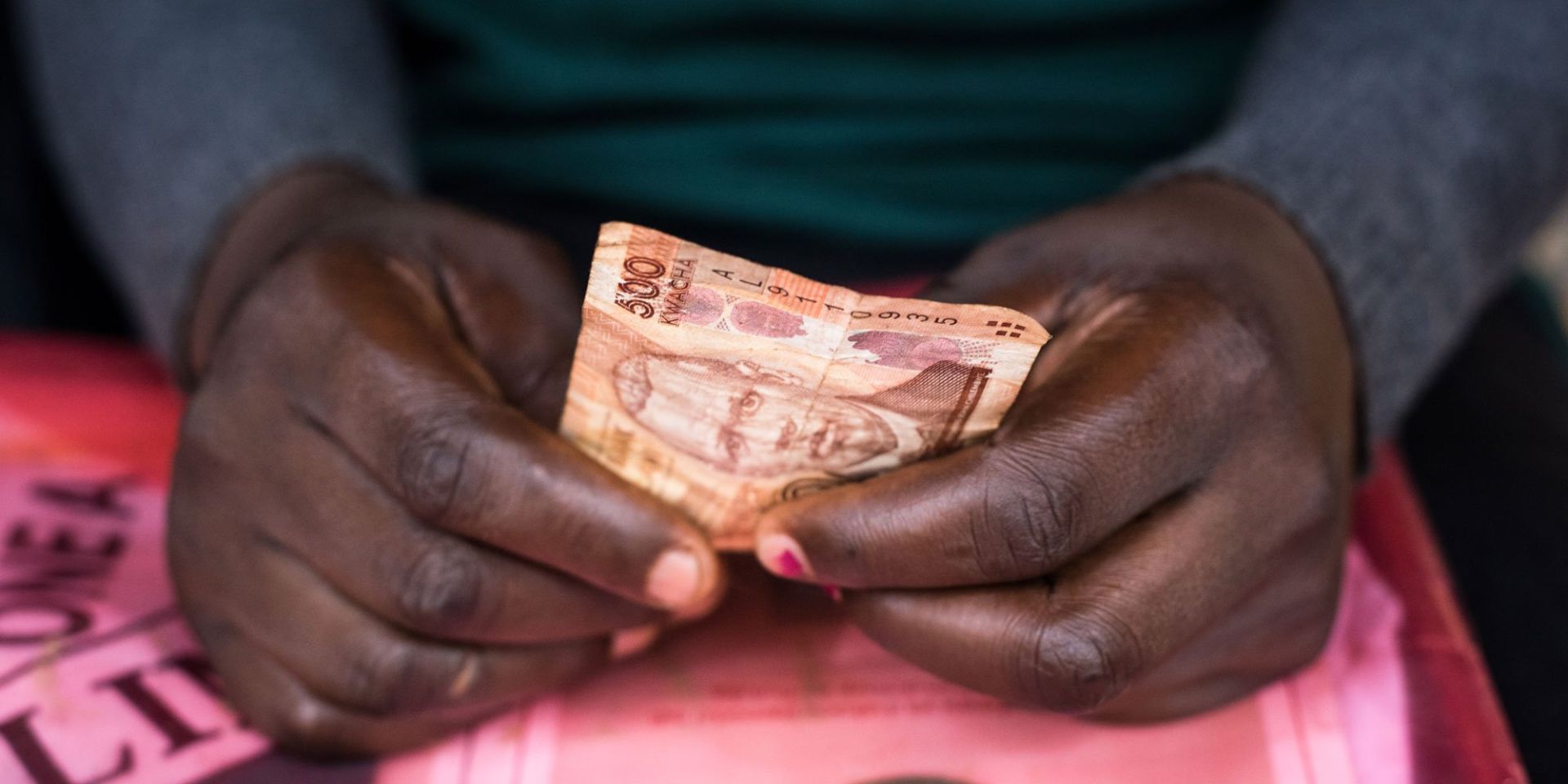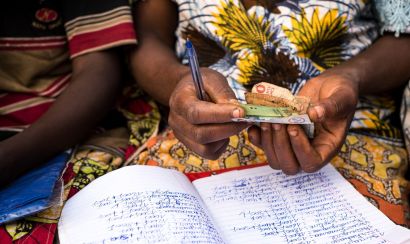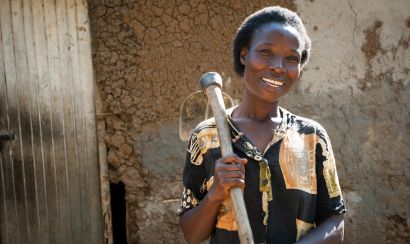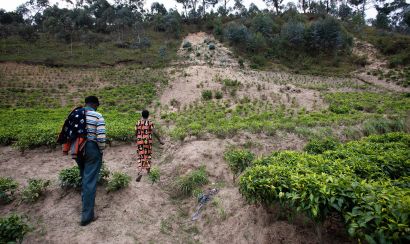Saving Together For A Better Life In Kenya
For most of Kenya’s smallholder farmers, saving money is very difficult. Access to the financial institutions that help people save is extremely limited. Many rural poor in Kenya live in remote areas – sometimes there can be 100 miles separating them from the nearest bank.
But for farmers in Kenya, and many other countries in East Africa, there is a practical solution to the problem of savings.
A “merry-go-round” is a small social organization where members contribute a small sum of money on a regular basis, often every week. Each time money is collected, the full sum is paid out to one of the members. The members take turns receiving the pay-out so that after one full cycle, every member of the group has had a turn. By participating, members are essentially putting money away until it comes back to them as a larger sum.
In Ndengelwa village in Western Kenya, fourteen farmers are using the merry-go-round to help each other save. They call themselves Bora Uzima, which means ‘better life’ in Swahili.
The Bora Uzima group was formed when they enrolled with One Acre Fund in 2013. As part of the One Acre Fund training, field officers taught them the principles of the merry-go-round and encouraged them to start one.
To decide the order of receipt – whose turn it is to receive the payout first and whose turn is last – the group members wrote the numbers one to fourteen on small pieces of paper, folded them, and then had each member pick one out of a hat. “The number that a member picks depends on luck. We cannot afford divisions in our group, so this method helps keep the process free and fair and leaves every member satisfied,” says Maximilla Nyongesa, leader of Bora Uzima.
Each Bora Uzima member contributes 200 Kenyan Shillings ($2.28 USD) to the pot when they meet every week. With 14 members, that means that each week one person receives 2,800-Kenyan Shillings ($31.71 USD).
The merry-go-round has increased savings dramatically, and cut reliance on costly money lenders. Also, the members have saved significantly on transport costs they might otherwise need to access banking services. For Bora Uzima members, traveling to the nearest bank costs 150 Kenyan Shillings ($1.70 USD), not much less than the 200 Shillings they’re contributing to the merry-go-round.
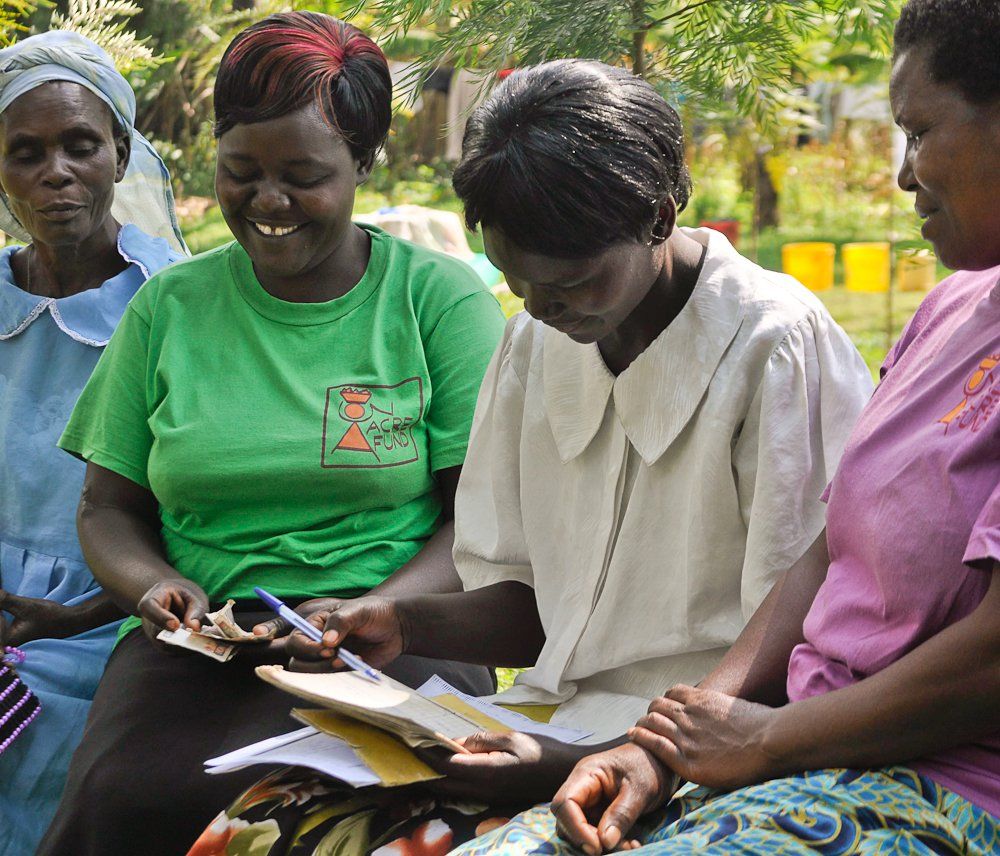
Since starting the merry-go-round, the farmers in Bora Uzima have seen positive changes in their lives. This year, every member of the group finished repaying their One Acre Fund loan by May, with a full three months to spare before the final deadline.
“When we started the merry-go-round, our goal was to ensure that every member repays their loan on time, but we did not anticipate repaying as early as we did. We were happy and surprised by our success,” Maximilla says.
The group members also used the group lending to pay their children’s school fees. Often farmers end up selling their harvests when the market price is low just to earn money for school fees. This year, most of the group members were able to use some of the money they received from the merry-go-round instead, allowing them to save their harvest until food prices had peaked later in the season.
“My harvest last season was not enough to feed my family and pay school fees as well, so I was worried. If I sold my harvest to pay for school fees, I would risk my family going hungry,” explains Charles Wenani, a member of Bora Uzima. “Luckily for me, the merry-go-round made it possible for me to store my harvest until I could get the best price for my crops.”
After paying for this year’s school fees, the Bora Uzima members decided to invest their savings in a new project. At the start of July, the group agreed to pool their savings and invest it in sheep. A local sheep breeder agreed to sell seven sheep at 4,000 Kenyan Shillings ($45.40 USD) each. Since then, every week the members’ contribution pays for the sheep and reduces the total amount bit by bit. The group expects to receive the sheep at the end of September, with two members sharing ownership of one sheep.
The merry-go-round has not only been about financial gain for Bora Uzima group members. It also offers a platform for face-to-face interaction and building of close interpersonal ties. Apart from contributing money during their weekly meetings, members also share their personal experiences, ask for advice, and have the opportunity to relax and chat. Sometimes, friends in the group will cover each other’s contribution during weeks they have no money.
“When I learned to be comfortable about my financial status with my group members, I also learned that I could trust them. The merry-go-round has helped build good neighborliness in our area,” Charles says. “My fellow group members have become closer friends than before.”
The merry-go-round has been instrumental to the success of Bora Uzima group members this season. They plan to continue for years to come and even invite even more farmers to join.
“Success will be sweeter for me when I can share it with many of my neighbors. We will recruit more members to our group because more members also means more money,” Maximilla laughs.
After such a successful year, completing repayment of One Acre Fund loans on time will again be the top priority for Bora Uzima in 2015. They have high hopes for what they can achieve with their savings, and agree that the merry-go-round will once again be vital to their plans.
